Un día leyendo en la Biblioteca de la Universidad de las Antillas, en la isla de Guadalupe, miré hacia arriba para ver la lluvia caer sobre los vitrales laterales de aquel edificio, vi el cielo blanco y el agua que empañaba la vista de un gran árbol ubicado justo al lado. Eran gotas gruesas que producían un tamborileo al caer sobre aquella superficie transparente.
One day while reading in the library of the University of the Antilles, on the island of Guadeloupe, I looked up to see the rain falling on the side windows of that building, I saw the white sky and the water that blurred the view of a large tree located right next to it. They were thick drops that produced a drumming sound as they fell on that transparent surface.
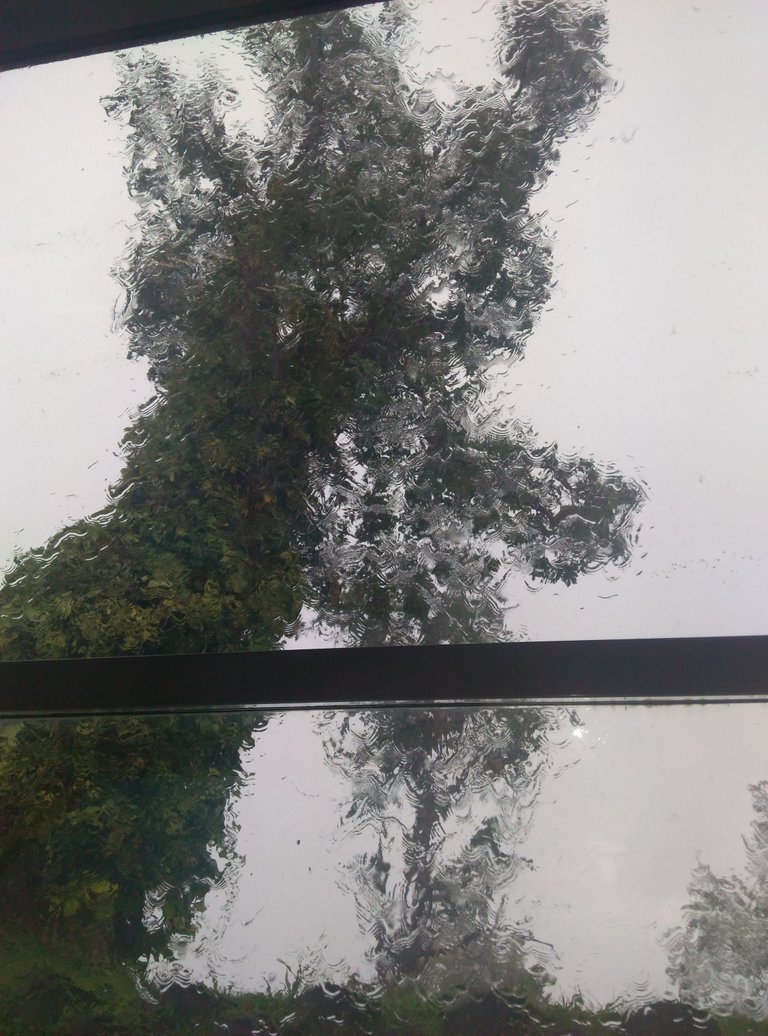
Tomé una fotografía con un viejo teléfono que tenía y continue mi lectura: El siglo de las luces, del cubano Alejo Carpentier, una novela extraordinaria que justamente tiene como escenario el Caribe: Guadalupe, Cuba, Haití. Estaba metido completamente en la historia, cuando el narrador cuenta cómo uno de los personajes, Esteban, que viaja constantemente hacia la Basse Terre atravesando una densa vegetación, "era sorprendido en sus viajes a través de la hojarasca por algún aguacero" y comparaba en su memoria "la diferencia que había entre las lluvias del Trópico y las monótonas garúas del Viejo Mundo”.
I took a picture with an old phone I had and continued my reading: The Age of Enlightenment, by the Cuban Alejo Carpentier, an extraordinary novel that justly has the Caribbean as its setting: Guadeloupe, Cuba, Haiti. I was completely into the story, when the narrator tells how one of the characters, Esteban, who constantly travels to Basse Terre through dense vegetation, "was surprised on his travels through the leaf litter by some downpour" and compared in his memory "the difference there was between the rains of the Tropics and the monotonous downpours of the Old World".
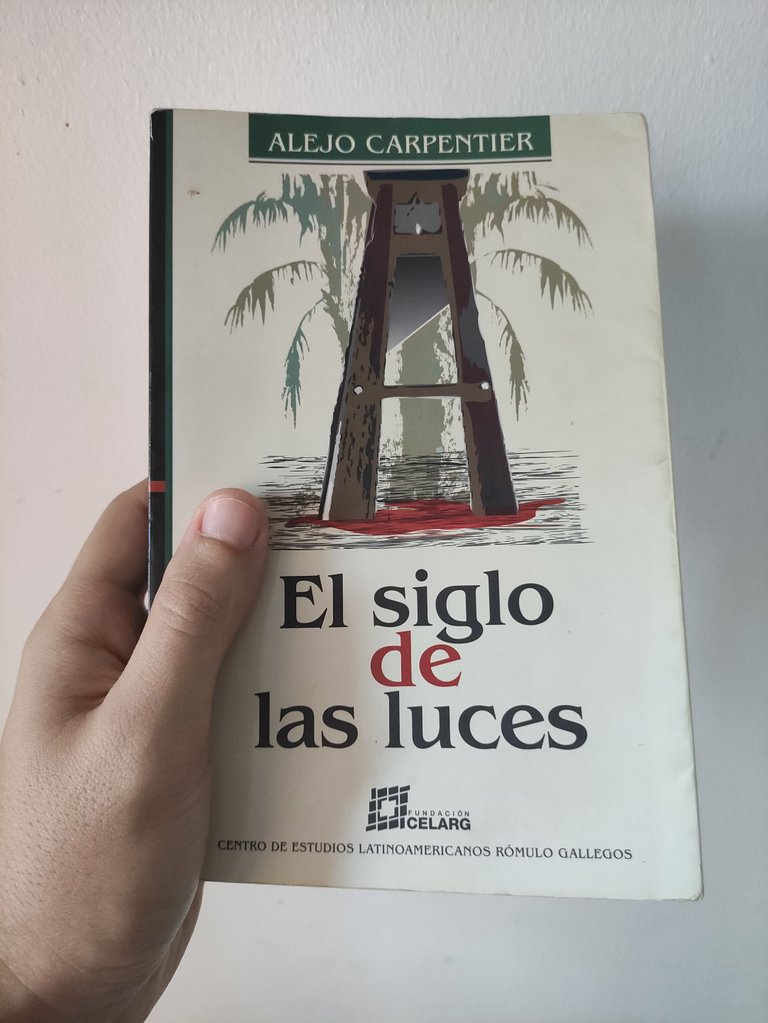
En mi tierra natal (Venezuela) a una lluvia intensa o un aguacero también le dicen un Palo de Agua o una Lata de agua y eso no tiene nada que ver con las lluvias de Europa. Un aguacero en el Caribe puede caer repentinamente, de golpe, cuando el día parecia ser soleado, cuando no había rastros de nubes media hora antes.
In my homeland (Venezuela) a heavy rain or downpour is also called a Palo de Agua or a Lata de agua and that has nothing to do with the rains in Europe. A downpour in the Caribbean can fall suddenly, all of a sudden, when the day seemed to be sunny, when there was no trace of clouds half an hour before.
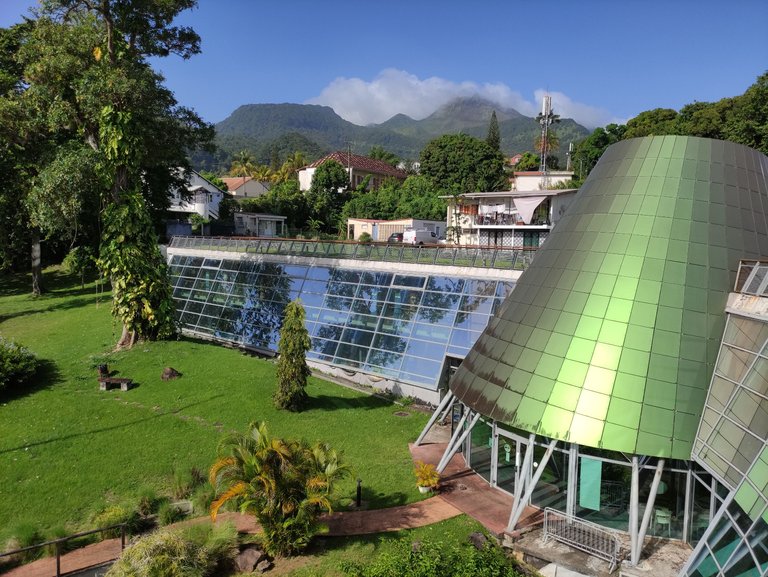
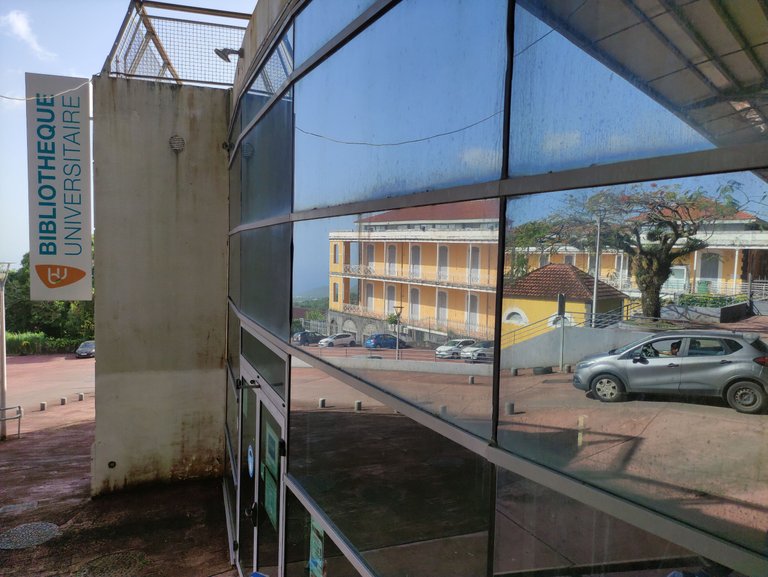
Pero de repente, todo se acaba y el sol se abre paso y es un día radiante nuevamente. Ese día en la Biblioteca pasó lo que decía el narrador de El Siglo de las Luces: " Y luego se calmaba el cielo, se dispersaban las nubes y proseguía Esteban su viaje".
But suddenly, everything is over and the sun breaks through and it is a radiant day again. That day in the Library, what the narrator of The Age of Enlightenment said happened: "And then the sky calmed down, the clouds dispersed and Stephen continued his journey".
Todo se calmaba y yo seguía también mi viaje por la novela mientras que afuera parecía que nunca hubiera llovido.
Everything calmed down and I also continued my journey through the novel while outside it seemed like it had never rained.
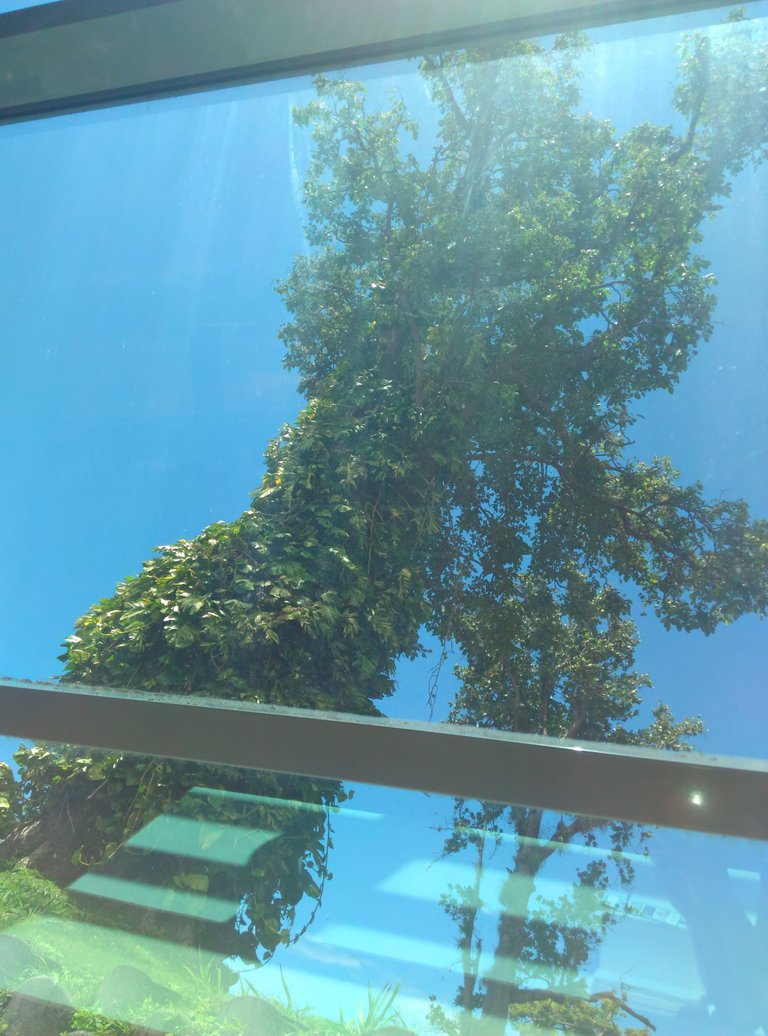
En Cien Años de Soledad, del colombiano Gabriel García Márquez también aparece un aguacero tropical que monopoliza la novela por un momento: una lluvia brutal y expontánea que tiene lugar un domingo en el Macondo caribeño imaginado por el escritor.
In One Hundred Years of Solitude, by the Colombian Gabriel García Márquez, there is also a tropical downpour that monopolizes the novel for a moment: a brutal and spontaneous rain that takes place one Sunday in the Caribbean Macondo imagined by the writer.
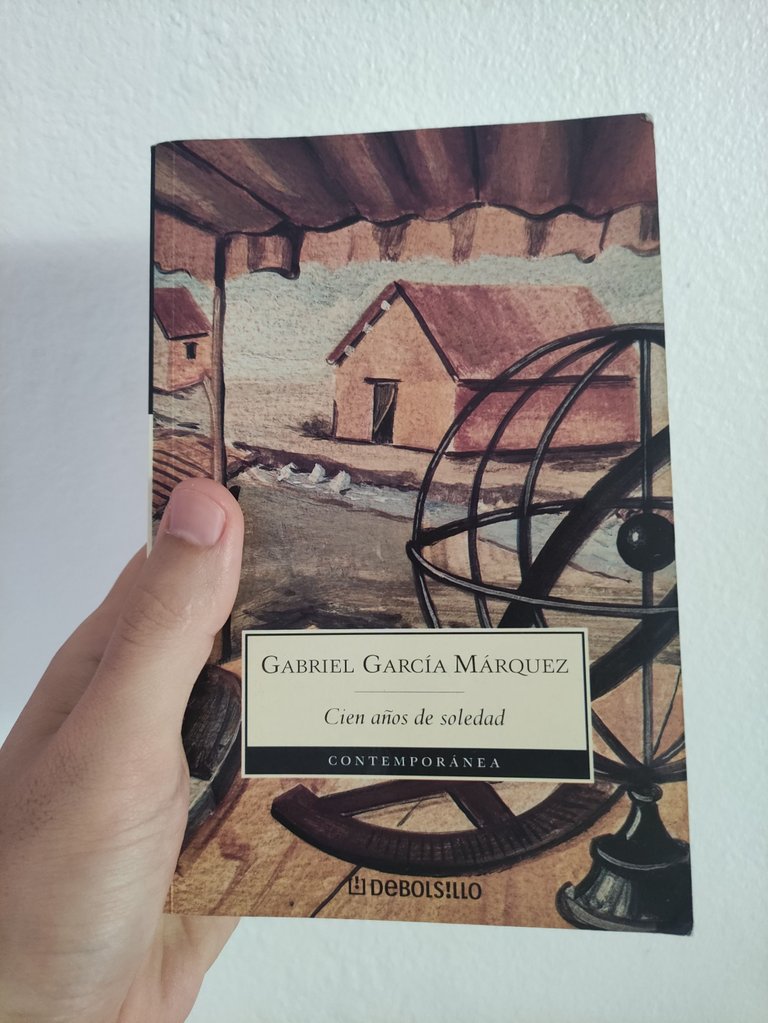
A diferencia de los aguaceros que vive el Esteban de El siglo de las Luces que son temporales, el que cae sobre Macondo dura cuatro años, once meses y dos días, pero al igual que el de Carpentier nadie se lo esperaba.
Unlike the downpours experienced by Esteban in The Age of Enlightenment, which are temporary, the one that falls on Macondo lasts four years, eleven months and two days, but like Carpentier's, no one expected it.
"La noche del sábado había sido sofocante. Pero aún en la mañana del domingo no se pensaba que pudiera llover", dice el narrador.
"Saturday night had been sweltering. But even on Sunday morning there was no thought that it might rain," says the narrator.
También sofocante era aquel sábado en Guadalupe cuando una mujer decidió tender la ropa a lo largo de los hilos de alambre que tenía en su jardín. Hacía un bonito día, había prendas de diversos tamaños y los peluches de su hija. Su idea era aprovechar el sol radiante que hacía aquella mañana.
It was also sweltering that Saturday in Guadeloupe when a woman decided to hang clothes along the strands of wire in her garden. It was a beautiful day, there were clothes of various sizes and her daughter's stuffed animals. Her idea was to take advantage of the bright sunshine that morning.
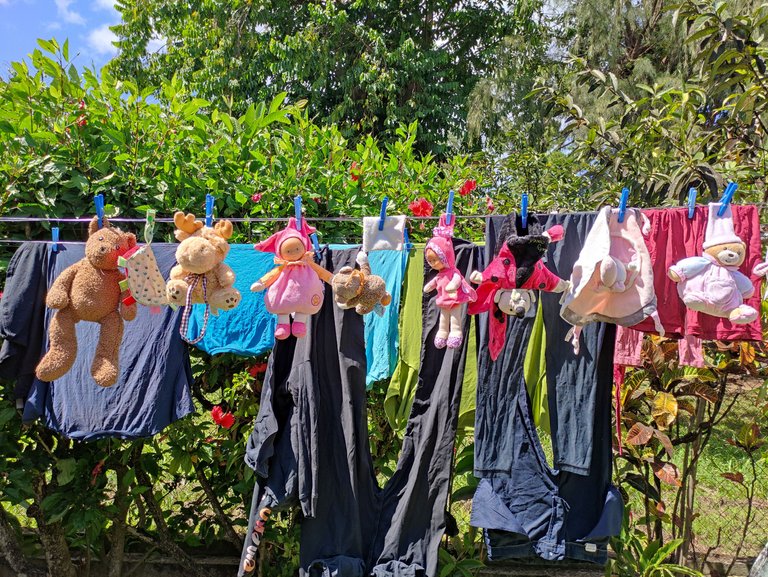
Eran las 10:00 de la mañana y en el cielo sólo unas pocas nubes dispersas y lejanas interrumpían el azul claro que ocupaba casi la totalidad. No había riesgos de lluvia, o al menos eso parecía, pero como en el Caribe todo parece imprevisible hay que estar listos para salir corriendo por su llegan unas gotas inesperadas.
It was 10:00 in the morning and in the sky only a few scattered and distant clouds interrupted the clear blue that occupied almost the entire sky. There was no risk of rain, or so it seemed, but as in the Caribbean everything seems unpredictable you have to be ready to run for unexpected drops.
Con suerte la ropa se secaría cuando mucho en unos 40 minutos, pero la lluvia del Caribe, brutal e inesperada cayó sobre las ropas casi secas media hora después de haberlas tendido.
Hopefully the clothes would dry in about 40 minutes at the most, but the Caribbean rain, brutal and unexpected, fell on the almost dry clothes half an hour after they were laid out.
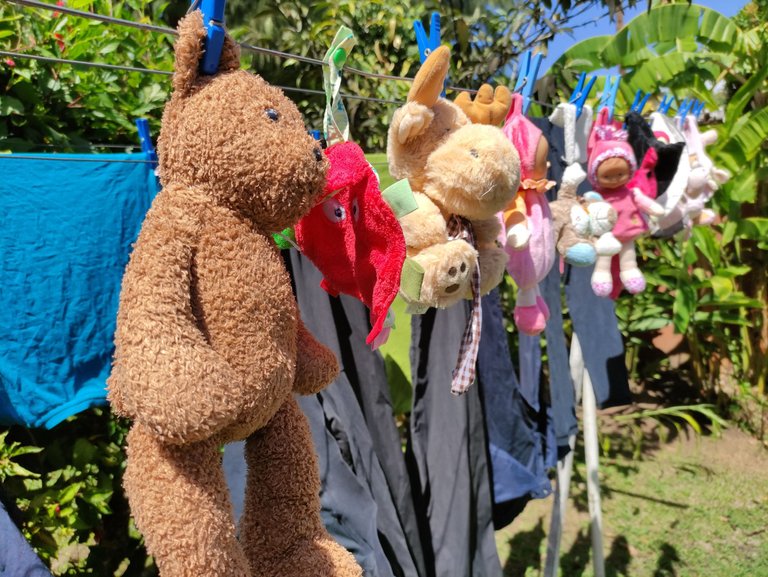
Traslated to English with https://www.deepl.com